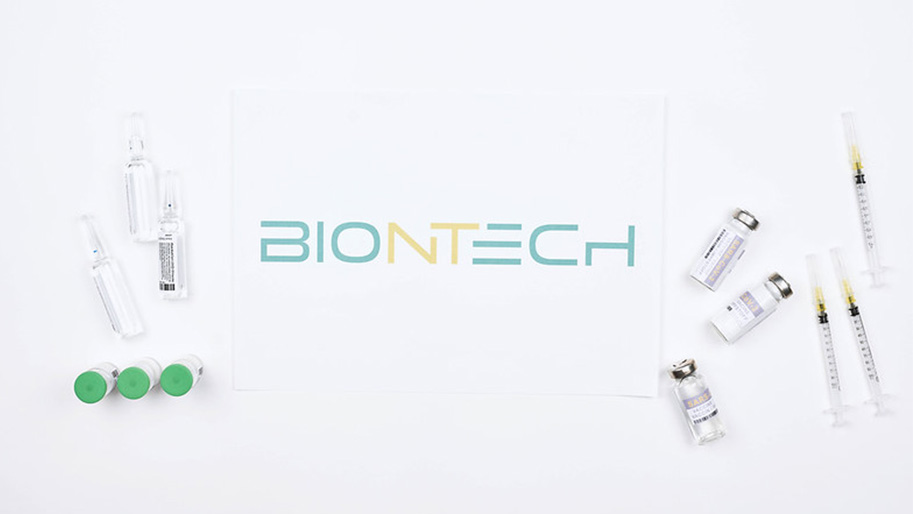How a Once-Dismissed Idea Is Ending the Pandemic
 © Marco Verch
© Marco Verch
BioNTech rose to global fame in 2020 for the successful COVID-19 vaccine they developed with Pfizer. But the vaccine is only the beginning for the German biotech. Their immunotherapy science may soon revolutionize medicine.
Before two mRNA vaccines were saving the world from COVID-19, the science behind them was ending a career.
Hungarian-born scientist Katalin Karikó was demoted from her faculty position at the University of Pennsylvania in 1995 when she couldn’t secure funding for her research. Her then outlandish idea was to modify messenger RNA (mRNA), the code that tells cells which proteins to make, to create useful proteins like antibodies against infections or enzymes to reverse rare diseases. The problem, as Karikó’s many funding rejections pointed out, was that synthetic mRNA was destroyed by the body’s immune system before it reached its target cells.
Then came the breakthrough. In 2005 Karikó and Boston University collaborator Drew Weisman discovered that modifying one nucleoside, one building block on mRNA, thus creating a hybrid mRNA, allowed the molecule to enter a body’s cells without triggering an immune response.
mRNA Crosses the Atlantic
Though Karikó’s publication on the topic didn’t immediately revolutionize science, it caught the attention of Ugur Sahin and Özlem Türeci in Germany. The science power couple met when they were both physicians at a hospital in Saarland, Germany. Their focus has always been immunotherapy, particularly harnessing the body’s immune response to fight cancer. Sahin and Türeci founded BioNTech, a name derived from Biopharmaceutical New Technologies, in 2008 to develop cancer immunotherapy that relied on mRNA.

BioNTech licensed the process developed by Katalin Karikó and Drew Weisman, even after their work had flown mostly under the radar. BioNTech believed so strongly in Karikó’s work, in fact, that they hired her as Senior Vice President in 2013.
BioNTech Goes Big
Before 2020, BioNTech was a largely unknown German biotech. With their research facility in Mainz, Germany on a street called An der Goldgrube, or “at the goldmine,” the company specializes in individualized cancer immunotherapy research, an application of precision medicine. With over twenty product candidates including ten in ongoing clinical trials, BioNTech is trying to tailor-make a cancer therapy for each individual patient based on the genetic features of their tumor.
Using next generation genetic sequencing, BioNTech creates a comprehensive molecular map of an individual tumor and translates that map into treatment decisions. So far BioNTech has treated over 440 patients across 17 tumor types.
Origins of the Pfizer Partnership
BioNTech began working with Pfizer on the development of an mRNA-based flu vaccine in 2018. Hearing news of the emerging novel coronavirus in China in January 2020, Ugur Sahin devoted the company’s resources to tackling the virus. It was a risky move. On one hand, it was mRNA science’s moment to shine; on the other, failure would forever shed a negative light on the technology, which already had such a long history of skepticism in the science community.
Because mRNA vaccines are quicker to produce than traditional vaccines, Sahin and Türecki knew they had to try. Plus, they were confident in the science they had spent most of their careers working on. In March 2020, BioNTech had officially signed on as Pfizer’s partner in COVID-19 vaccine development, thrusting the company into the international spotlight.
BioNTech’s COVID-19 vaccine works by injecting mRNA that creates the protein spikes identical to ones found on the SARS-CoV-2 virus that give the pathogen its “corona” name. In the spirit of immunotherapy, the body then produces antibodies that recognize those spikes so that future SARS-COV-2 pathogens are unable to lodge themselves in the body’s cells to replicate and ultimately infect a patient with COVID-19. What is so remarkable about this novel vaccine model is that it is able to trigger an immune response without exposing the patients to the pathogen.
This is the part of the story you know. Pfizer and BioNTech quickly convened clinical trials and became the first vaccine to receive emergency use authorization in the U.S. in December 2020. To the surprise and joy of the medical community, their vaccine would be over 90% effective in combatting COVID-19.
Act Two for mRNA
COVID-19 vaccine development is only the beginning for mRNA therapeutics. BioNTech believes the science can cure diseases impossible to cure with older generations of medical technology. Potential uses include vaccines for diseases like Parkinson’s as well as personalized cancer therapies.
While skepticism about mRNA therapies once cost Katalin Karikó her job, her work now underlies a leapfrog that may well revolutionize medicine in the coming years. Thanks to Karikó and the trust placed in her work by BioNTech and other global researchers, the COVID era may come to a close in 2021.
The Pfizer-BioNTech COVID-19 story is a story of international collaboration and exchange. Hear more inspiring stories like this one about the value of knowledge exchange from the German Center for Research and Innovation (DWIH) New York.
